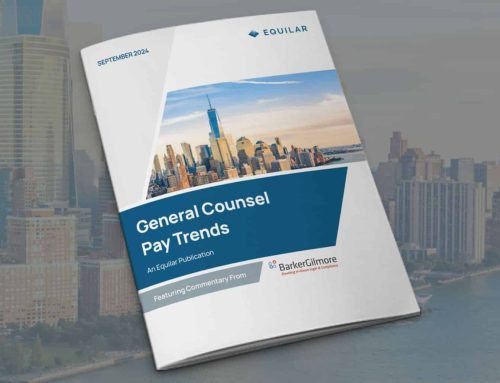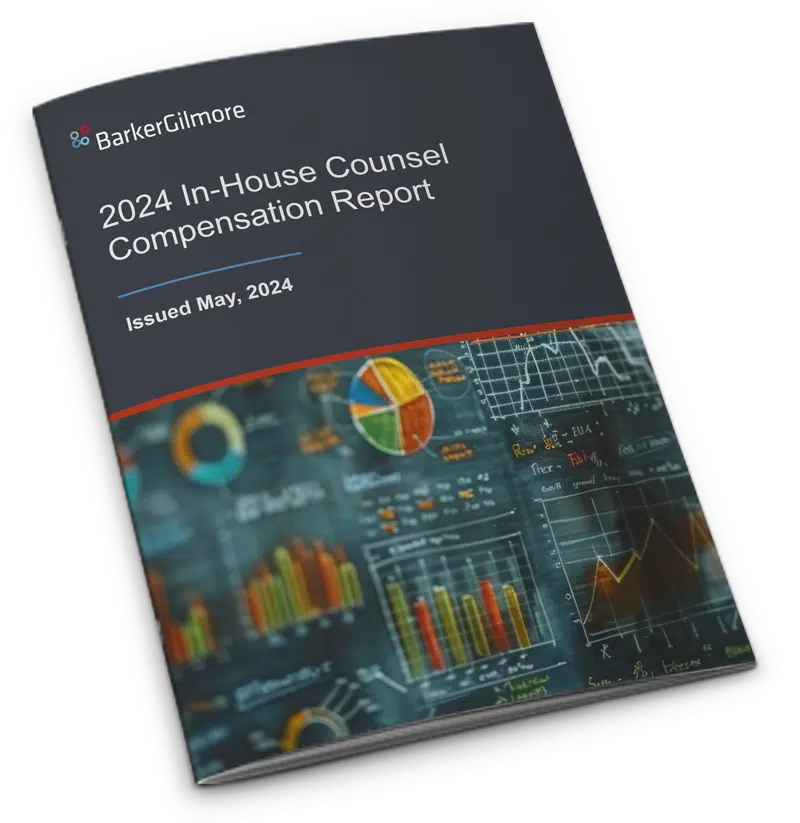CEOs want their general counsel to improve on business strategy, new market expansion, and industry knowledge, according to a new BarkerGilmore LLC and Chief Executive Group survey. GCs should be encouraged to move outside of the legal environment by learning about products, competitors, and customers and use that knowledge to contribute to senior leadership discussions, BarkerGilmore advisers say.
Four out of five CEOs want their general counsel to be a strategic business partner and valued leadership team member, according to a recent report by Chief Executive Group and BarkerGilmore.
However, the report found that only 61% of public company CEOs and 40% of private company CEOs view their [current] GC as meeting the ideal.
John Gilmore, managing partner of BarkerGilmore, explained that for past reports, Board members were polled. This year, they surveyed CEOs from 100 public and private companies for their perspective. He said it was “not much of a surprise that boards and CEOs are well aligned on the necessity of a GC capable of serving as a strategic business partner.”
With 84% of public GCs and 57% of private GCs on the executive management team there is opportunity for GCs to contribute in more strategic ways at their organizations. The top three areas CEOs would like their GCs to improve on are business strategy, new market expansion, and industry knowledge.
Only 6% of public company CEOs and zero private CEOs believed their GCs add the most value in contributing to business strategy discussion.
The report shows there is a disconnect between the strategy CEO’s want from their general counsel and where they have them in the leadership team, particularly at smaller companies.
If the general counsel are not part of the leadership team reporting to the CEO but instead are informed of decisions after the fact, they are doomed to be implementers not given the opportunity to add strategic value.
General counsel not currently on the leadership team should work with their supervisor, most likely the CFO or Chief Administrative Officer, to develop goals that will enable them to show their strategic value. Ideally, their boss can be their sponsor by developing roles and responsibilities that allow the general counsel to expand beyond legal work.
Greatest Impact Areas
CEOs believe that GCs, at both public and private companies, make the greatest impact with litigation/investigation management, risk management, and crisis management.
In terms of oversight, overall, companies are missing the value a legal perspective can bring to human resources and cybersecurity with only 22% of GCs involved in human resources oversight and 17% with cybersecurity.
Private company GCs are more likely to oversee risk management (81%), compliance & ethics (50%), human resources (42%), and government relations (35%); compared to public company GCs overseeing compliance & ethics (84%), government relations (49%), risk management (44%), and privacy (31%).
Across topics, a good GC can “bridge the gap” between departments from a risk evaluation perspective, and they can provide value around strategy.
After analyzing how CEOs are utilizing their general counsel on the leadership team, CEOs should to ask themselves if they have given their general counsel the opportunity to be the strategic partner they want them to be.
Some questions CEOs need to ask:
- Has the CEO outlined their expectations to their GC?
- Have they created annual SMART goals together that reinforces that message?
- Does the general counsel have the resources that enables them to spend their time on strategy?
Conversely, general counsel need to find time to learn the business more by evaluating their responsibilities and delegating where possible. They also should not outsource strategic opportunity to outside counsel.
Some questions GC need to ask of themselves:
- What can only you do?
- What can you delegate?
- What can move outside of legal?
Finally, general counsel should be encouraged to move outside of the legal environment by learning about products, competitors, and customers and then use that knowledge to contribute to senior leadership discussions. They are responsible for understanding where they add the most value to the CEO, Board, their peers in the c-suite, and their legal team, and, most importantly, taking action to deliver on that value.
Successor Planning
The research also shows that 58% of CEOs do not have a potential GC successor identified. This problem intensifies as company annual revenue size decreases with 95% of CEOs at $100 million to $249.9 million annual revenue citing no potential successor compared to 45% at $1 billion+ companies.
Most CEOs (63%) plan to benchmark internal candidates against external talent when it comes time to recruit their next GC.
For more insight into CEOs perspectives on their General Counsel, access the full report here.
This column does not necessarily reflect the opinion of The Bureau of National Affairs, Inc. or its owners.
Connect with a legal recruiting advisor
* indicates required fields







